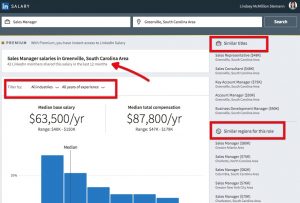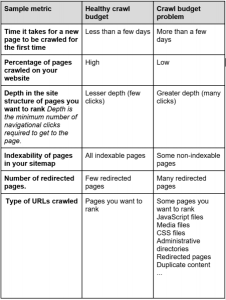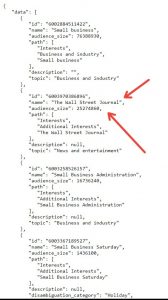
geralt / Pixabay
As a business owner, do you ever start your day with a long list of things to get done only to finish up your day wondering where all the time went (and very little progress on that list?)
Obviously your day ran you, instead of you running your day.
Don’t worry, it happens to the best of us. You probably got interrupted with a bunch of unplanned urgent issues – clients called, your team had questions, something blew up and you had to deal with it. Even if you get much better at managing unplanned interruptions, you’d still end up with a to-do list that doesn’t get finished.
Time is an entrepreneur’s greatest asset and when time bandits strike and steal your focus away from what’s important, overwhelm and frustration often sets in. It might surprise you to learn that often time management issues are less about the “hacks” and more about self-awareness.
What if you could better manage your time so you get more done? After studying the time management practices of thousands of high performing business leaders and high-earners, there are a few hacks that can make a significant difference in your ability to get more done.
1) Make a Clear Decision On Your “Work Time”
The first thing you have to do is create a new standard for your work and personal life by getting crystal clear about your ideal work hours – how many hours a day are you really going to work? What’s best for your stress level? Your other priorities like family and community? Listen, there will always be more work that there is time to get things done. When you decide to have a life outside of work, then magically, you’ll become better at saying NO to distractions and YES to your priorities.
The key is creating a clear boundary around your work time and your personal life. For instance, “I leave work at 6:00 pm no matter what” is a boundary that helps you and the people in your life know when you are available for work activities. Be sure to close the office door and turn off email when it’s time to be “off” work.

Firmbee / Pixabay
2) Upgrade Your Self Talk
The thoughts you think throughout the day have a huge impact on how stressed out you feel. If you tell yourself you are running out of time, worry incessantly about getting it all done, and focus on all of the tasks that you won’t have time to accomplish, then stress goes up. When stress is high, resourcefulness is low, and you will unconsciously slow down your action steps.
Start telling yourself, “I have all the time I need to get the most important activities done.” Your self-talk can bring your stress down which will help you have more focus. It might even help to visualize a fast-rushing river flowing around big rocks. I like to say to myself, “I flow like water around obstacles.”
Keeping my mind calm so I can focus on what’s next is the key. That might mean taking a break, going for a short walk, to clear your mind and regain focus. You might also want to check out this episode of Amplify Your Success Podcast to hear how Liquid Time Management works.
3) Write Out Your Priorities

melinda257 / Pixabay
Instead of keeping your to-do list in your head, make a list of what needs to get done on a piece of paper or brain dump them into some type of project planning tool. When your action list is in your head it’s difficult to tell yourself the truth about how long everything will take. Often your task list looks much bigger in your head which creates that daunting, overwhelming feeling.
By making a list, prioritizing the tasks that are more urgent, and tackling the most important tasks first, you’ll be able to knock out twice as many tasks in a shorter period of time than you ever thought possible. I call this “time blocking” and it’s very effective, especially if you tend to have lots of interruptions that disrupt your normal work time blocks. For ongoing activities and bigger projects, try using a low-cost project management tool like TeamWorkPM.com or Asuana.
4) Manage the Interruptions
Unplanned interruptions can get the best of even the savviest boss. I once coached a mortgage broker who had a team of 50 people on how to achieve more in less time. One of his greatest challenges was the constant interruptions when he was trying to make follow-up calls. Not only was it disruptive to being in his “sales zone” but he also only gave each question a fraction of his focus and often he didn’t remember what he said or gave incorrect feedback to his team. Distractions don’t just affect your productivity but they cause poor communication.
A better practice is to turn off distractions – your phone, social media, email and your instant messenger. It’s impossible to use your time wisely if you are constantly being interrupted. Give yourself a block of time to focus without allowing any distractions so you can complete tasks – and check them off your list. If that’s not possible, create “do not disturb” times with your team. By setting this boundary, you teach everyone how to be more productive.
If client emergencies tend to derail your day, you may need a gatekeeper or better personal boundaries so you don’t be enrolled in other people’s emergencies. The saying, “Your lack of planning doesn’t constitute an emergency for me” is a great mental framework to help you stay strong and avoid getting pulled into client fire drills. Create time to handle unplanned issues but keep your focus on your core priorities first.
5) Develop a More Effective Personal Time Strategy
We all have a “strategy” for how we manage time. A strategy is a sequence of thoughts, actions and habits that generate a result. Ask yourself, “is my time management strategy getting good results?” If not, then it’s time to develop a more effective strategy.
Develop self-awareness of how you manage time. In my NLP (neuro-linguistic programming) training I discovered that there are two ways people relate to time. Knowing if you are an “in-time” or “through-time” person, can help you pick the right type of time management practices that will actually stick. Here is a quick overview of the two types:
- In-time people live in the moment and have difficulty keeping track of time as they get lost in whatever they are doing. It is very hard for in-time people to plan ahead or estimate how much time something will take. These types are often late and miss deadlines.
- Through-time people can see where they are in time and tend to be more diligent about time commitments. Planning and organization is important. This type is good at being punctual.
When it comes to creating more effective time management, in-time people often react badly towards traditional time management techniques and resist calendars, project management tools and other types of linear tracking. They want to be in the flow and do what they feel inspired to do. Through-time people on the other hand are often very good at time management and have an easier time finding tools that work for them.
If you are an “in-time” person, the hack for more effective use of your time is to give yourself blocks of time to be in flow while referring back to your project list. Another approach is to hire someone for your team or hire a coach that is a “through-time” person so that you have greater accountability.
Ultimately, learning to shift your strategy to get into a better flow will allow you to accomplish more in an hour than most people get done in a day. By upgrading your strategy you will improve your mindset and habits around getting things done.
Business & Finance Articles on Business 2 Community
(50)







